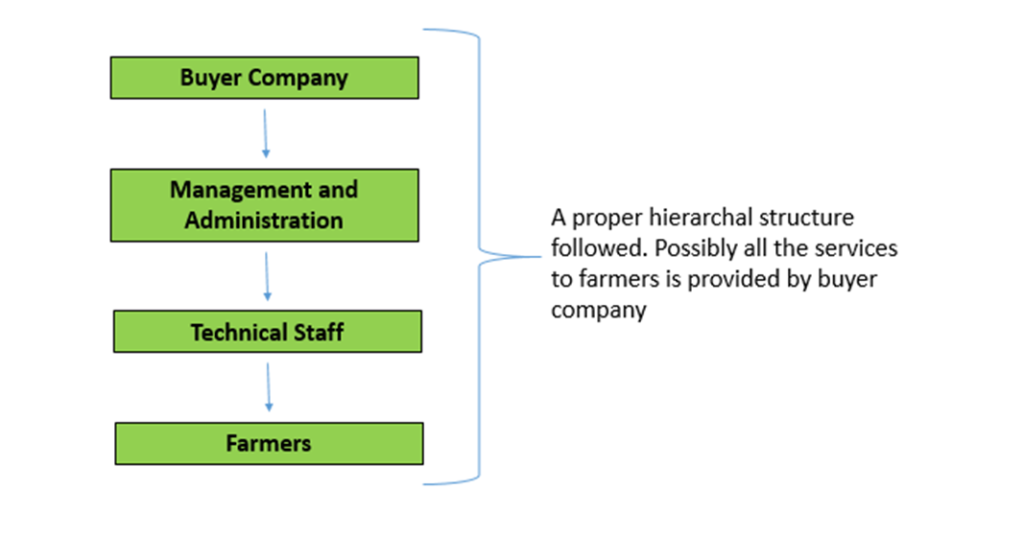Contact Farming
What is Contract Farming?
Contract farming is an agreement between the producer (farmer or farmer organization) and the buyers (exporters, processing units) mutually agreeing upon the price, quality, and quantity of the produce which will be exchanged after the harvesting. If you didn’t understand the definition. Don`t worry, let us understand it in an easy way.
Assume that you are a farmer growing Medicinal Plants and other corps also on your farmland and I am running a Contract Farming company which are contract Agreement between Farmers ( Producer ) and Pharmaceutical Companies and Others ( Buyers).
Contract Farming Models
In India, there are different models of contract farming practiced. The models which are to be followed totally depend upon the buyer. Before moving towards the types of contract farming, one thing is very much important to understand that in India there is no single type or set of contract farming is practiced. In the majority of cases it is mixed of all types. The types of contract farming described below are decided by the Food and Agriculture Organization (FAO). In some of the countries the exact model is followed while in countries like India they are customized according to the need of buyer and seller.
Nevertheless, let us look at them one by one. The Centralized Model:

All types of Birds (Bread, Egg, Meat)
Bread. Meat. Egg
Egg. Meat. Bread
Bread. Meat. Product
Benefits of Contract Farming
Contract farming comes with various benefits not only to farmers but also to the buyer companies. Let us see some of the benefits of contract farming:
Benefits to farmers:
Generally farmers are unaware of the price they will get from the market after harvesting. Due to supply demand fluctuations the agricultural products are priced beyond the affordability of the farmers. Contracts enable the price fixation before the season starts and give an assured price to the farmer.
The private companies guarantee buying of the farm products after the harvesting. Hence, farmers do not have to find a market to sell their produce. This also decreases the transportation cost which other wise farmers have to bear taking the products to market.
Involvement of technology firms helps the farmers to adopt the latest technology. Eventually the best quality of produce can be grown and incomes for farmers increase.
India`s rural financing sector is still unexplored. Farmers are not aware of various financial services. Even if they are aware, there is poor accessibility. Contracts enable them to take the benefit of taking credit and crop insurance.
Through technical knowledge and advanced cropping schedule given by the buyer company farmers have an opportunity to learn something new and adopt in their daily farming activities.
Not only the input provided but also the knowledge transfer of judicious use of those inputs are provided which is beneficial to the farmers.
Benefits to buyer
The firms can get the specific and timely delivery of products directly from the field.
As the produce is grown under the constant monitoring and observation, the company is well aware of the ingredients used in the form of inputs to produce them which helps to get advantage of backward traceability.
The market is never constant for the raw material produced at farm. However, the demand for processed food is increasing day by day. In such a case, it is very much important to have a constant supply of raw material. The contract based farming enables the constant supply.
India`s rural financing sector is still unexplored. Farmers are not aware of various financial services. Even if they are aware, there is poor accessibility. Contracts enable them to take the benefit of taking credit and crop insurance.
Conclusion
India has most small and marginal farmers. They are not able to avail some basic services required in Agriculture. The reason can be either they are not aware of such services or they are not able to access them. Contract farming in India can solve this issue. Moreover, there is constant price fluctuation in the market, due to which not only farmers but also exporters, agri processing firms are facing challenges. This system of getting under contracts gives them the assure price and the timely exchange of the farm produce. India has to evolve from its conventional way of farming. The first step is to adopt the contract farming system and scaling the model throughout the geography. Government can also support by actively making public private partnerships and working with farmers making many such joint ventures and achieving the target of doubling farmers’ income.
